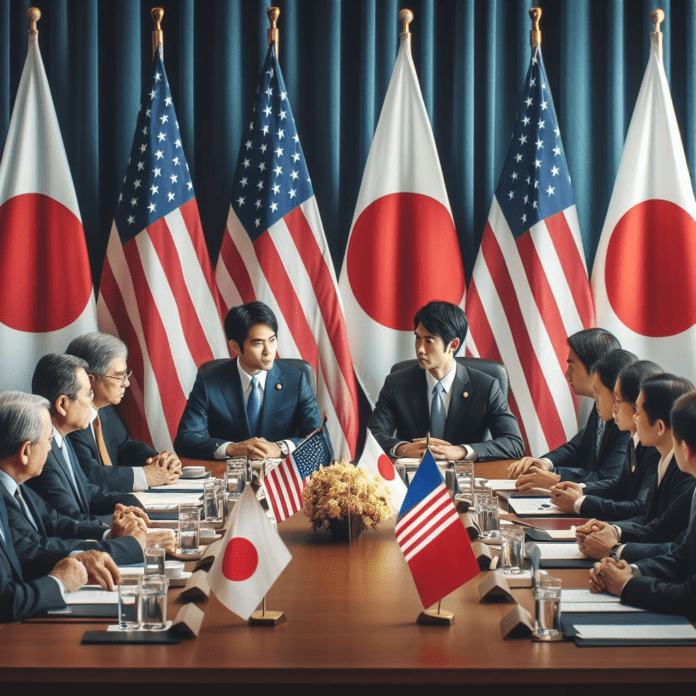US, Japan and the Philippines meet is scheduled in the white house to strengthen defence ties. Historically, these three countries have fought wars and battles against each other. But in contemporary times, their relationship is increasingly defined by a shared concern over China’s assertive actions in the region. Let us understand why this Japan-Philippines meet is so significant.
Historical Background
The Philippines’ tumultuous journey began with its colonization by the United States in 1899 after the Spanish-American War. This war witnessed close to one million life losses from both sides. Despite initial resistance, the Philippines remained under American control until World War II, during which it endured a brutal Japanese invasion, resulting in significant civilian and military casualties. This event highlights the tensions between these three countries.
Contemporary Dynamics
Today, the strategic landscape has shifted, with China’s rise as a dominant regional power altering the equation. The looming specter of a conflict over Taiwan, viewed by China as part of its territory, has brought the US, Japan, and the Philippines closer together than ever before.
Taiwan Factor
The Taiwan Relations Act binds the US to provide defence support to Taiwan, a commitment reiterated by President Biden. Both Japan and the Philippines, as US defence treaty allies, recognize the strategic significance of peace in Taiwan for their own national security.
South China Sea Disputes
The South China Sea serves as another focal point, with China’s expansive territorial claims causing tensions with the Philippines and other neighbouring countries. Philippine-China tensions particularly revolve around the Second Thomas Shoal, highlighting the ongoing struggle for maritime sovereignty. In the 1990s, the Philippines grounded an ageing World War II-era navy transport ship on the shoal, to help enforce its claim to the area. The ship is now mostly rusted wreckage and is manned by Philippine Marines stationed on rotation. Philippines Meet with its counterpart is expected to discuss this issue.
Japan’s Stance
Japan, with its own territorial disputes with China over the Senkaku Islands, shares a vested interest in maintaining stability in the region. Its reliance on maritime trade routes passing through the South China Sea underscores the importance of a “free and open Indo-Pacific.”
Also marring the mood between Washington and Tokyo at the summit is Biden’s opposition to Nippon Steel’s proposed $14-billion acquisition of US Steel, based in Pennsylvania, a key election battleground state.
A visit by Kishida to Toyota and Honda factories in North Carolina during his visit to highlight Japanese investment is seen as an attempt to soothe fears about the deal.
Changing Alliances Ahead of Japan Philippines Meet
The leadership transitions in the Philippines, from Duterte’s pro-China stance to Marcos Jr.’s alignment with the US, demonstrate the fluidity of alliances in response to evolving geopolitical challenges. The Biden administration’s approach of forming a “latticework” of alliances around China seeks to bolster stability in the face of uncertainty. However, Biden has also tried to release the tensions by calling Xi Jinping and discussing the current geopolitical tensions.
Duterte, the past president of the Philippines looked more favourably on relations with China than the US and at one point threatened not to renew agreements that let the US military operate on the soil of its former colony. But Marcos has gone in the opposite direction and US, Japan, and Philippines Meet has become an important milestone.
Multilateral Cooperation
Recent multilateral activities involving the US, Japan, Australia, and the Philippines signal a concerted effort to strengthen regional security cooperation. This collaborative approach aims to counterbalance China’s influence and ensure the longevity of strategic partnerships. Named the “Maritime Cooperative Activity”, the drills will include naval and air force units from all four countries
Recently, India has also extended its support to Manila as the tensions in the South China Sea are mounting.
As the US, Japan, and the Philippines meet will navigate the complex geopolitical landscape shaped by China’s ascent, the historical legacy of wars and battles gives way to a new era of strategic cooperation. By forging multilateral alliances and adapting to changing circumstances, these nations seek to safeguard peace and stability in the Indo-Pacific region for generations to come.


